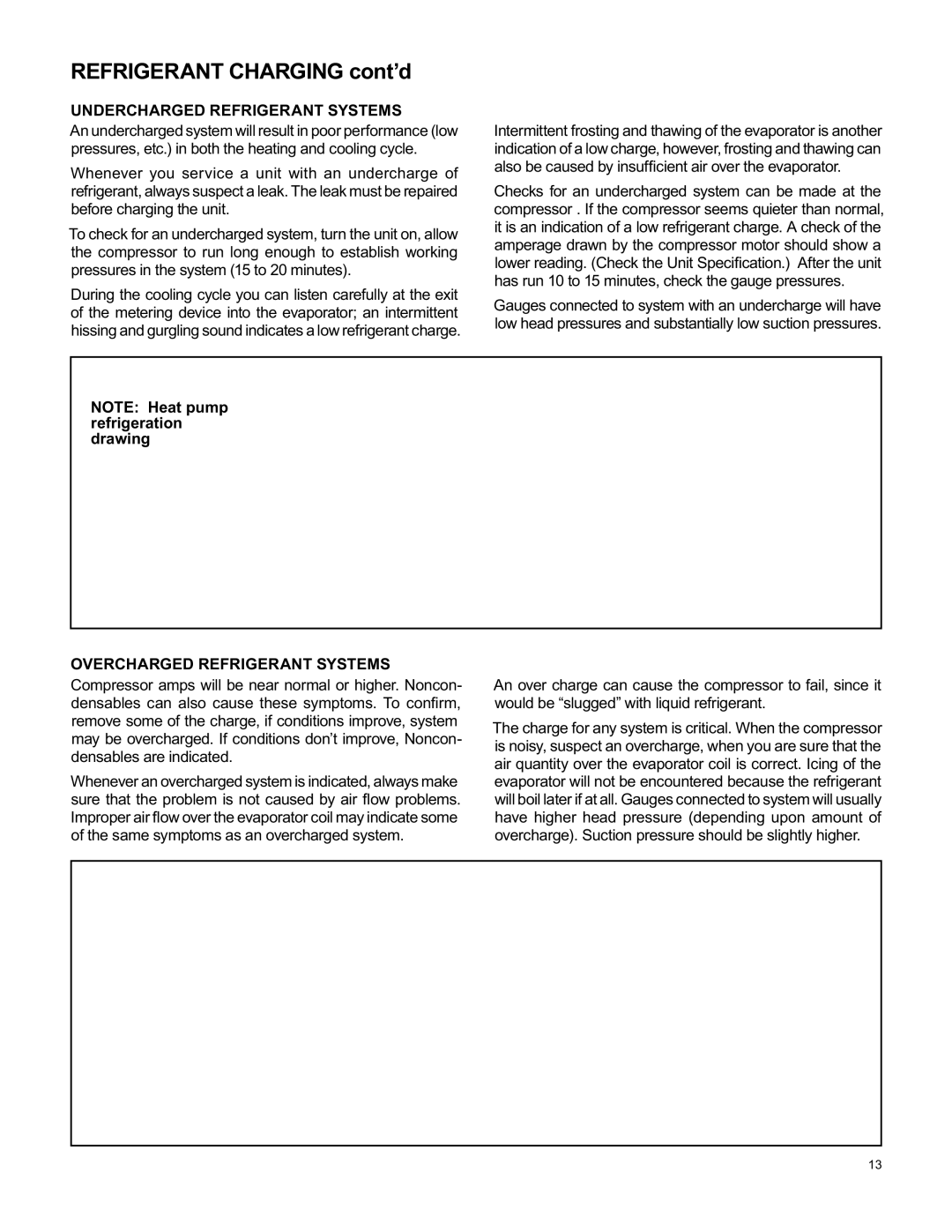
REFRIGERANT CHARGING cont’d
UNDERCHARGED REFRIGERANT SYSTEMS
An undercharged system will result in poor performance (low pressures, etc.) in both the heating and cooling cycle.
Whenever you service a unit with an undercharge of refrigerant, always suspect a leak. The leak must be repaired before charging the unit.
To check for an undercharged system, turn the unit on, allow the compressor to run long enough to establish working pressures in the system (15 to 20 minutes).
During the cooling cycle you can listen carefully at the exit of the metering device into the evaporator; an intermittent hissing and gurgling sound indicates a low refrigerant charge.
Intermittent frosting and thawing of the evaporator is another indication of a low charge, however, frosting and thawing can also be caused by insufficient air over the evaporator.
Checks for an undercharged system can be made at the compressor . If the compressor seems quieter than normal, it is an indication of a low refrigerant charge. A check of the amperage drawn by the compressor motor should show a lower reading. (Check the Unit Specification.) After the unit has run 10 to 15 minutes, check the gauge pressures.
Gauges connected to system with an undercharge will have low head pressures and substantially low suction pressures.
NOTE: Heat pump refrigeration drawing
OVERCHARGED REFRIGERANT SYSTEMS
Compressor amps will be near normal or higher. Noncon- densables can also cause these symptoms. To confi rm, remove some of the charge, if conditions improve, system may be overcharged. If conditions don’t improve, Noncon- densables are indicated.
Whenever an overcharged system is indicated, always make sure that the problem is not caused by air flow problems. Improper air flow over the evaporator coil may indicate some of the same symptoms as an overcharged system.
An over charge can cause the compressor to fail, since it would be “slugged” with liquid refrigerant.
The charge for any system is critical. When the compressor is noisy, suspect an overcharge, when you are sure that the air quantity over the evaporator coil is correct. Icing of the evaporator will not be encountered because the refrigerant will boil later if at all. Gauges connected to system will usually have higher head pressure (depending upon amount of overcharge). Suction pressure should be slightly higher.
13
